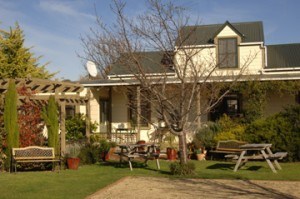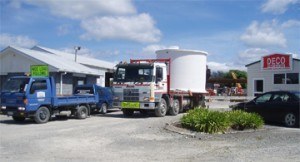South Wairarapa Rebus Club
On Friday 26 September we heard from John Reeve, a Carterton resident, who retired last year from a 40 year career in the NZ Government Service as a regulatory toxicologist and risk assessor. Beginning with the risk assessment of pesticides and veterinary medicines as part of the registration process in New Zealand in 1976, he progressed through a variety of ministry reorganisations, finishing under the Ministry for Primary Industries, responsible for the risk assessment of any human exposures to chemicals and particularly to those chemicals that find their way into food. Most recently he has specialised in the toxicology of natural toxins, such as those produced by plants and marine species.
Toxicology is a broad profession calling for a wide understanding of the life sciences: biochemistry, pharmacology, physiology, microbiology etc., although history’s first toxicologists, the archers who poisoned their arrow tips to kill mammoths, might not have understood the complexity of the game they were getting into. For instance, some essential nutrients, such as iodine, are toxic if taken in excess quantities. The New Zealand diet is deficient in iodine but a recommendation to require it to be added to bread was not accepted and instead it is added voluntarily by bakers.
John spent some time discussing honey. All honey is antiseptic in topical use because of its very high sugar content, which dehydrates microorganisms. Manuka honey, having the unique manuka factor (UMF), has some advantages in wound dressing but evidence that eating it gives extra health benefits is not strong.
Plants often manufacture toxins for protection from predation, which can get into honey. A Roman invasion of a Turkish village was stopped by the villagers leaving such honey in their houses and taking to the hills. The Roman soldiers, having been at sea for some time when they landed, welcomed the opportunity for a sugar hit and didn’t survive to capture the village.
In New Zealand there have been periodic mass poisonings through honey, the last being in Coromandel in 2008 where 22 people are known to have sought medical help including 12 who were hospitalised. The source of the poison, tutin, was tutu (Coriaria arborea), a New Zealand native shrub that grows throughout the country. However, tutu flowers are not toxic as the toxin is not present in pollen, which bees take for its protein.
The mechanism of transfer was found to be an insect, the passion vine hopper or “lace wing” (Scolypopa australis), that sucks sap from the tutu and secretes honeydew containing tutin, which the bees also harvested because of its sweetness. This insect is found only in warmer regions, which explains why honey poisoning has only been described in the North Island and northern parts of the South Island.
The South Wairarapa Rebus Club meets in Greytown at the South Wairarapa Working Men’s Club on the fourth Friday of each month. Anyone in the retired age group who may be interested in our activities is welcome to come along to a meeting as a visitor. Contact David Woodhams 06 306 8319.














Recent Comments